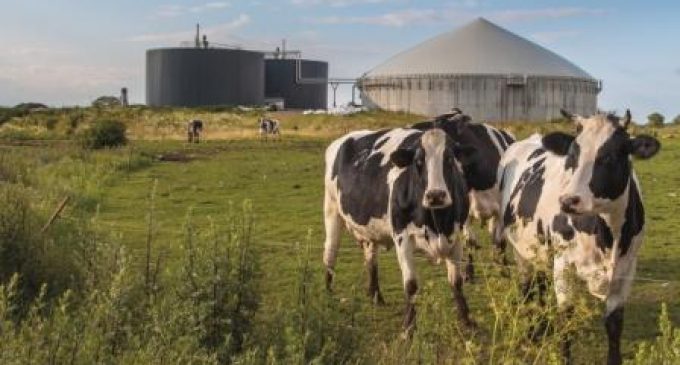Do Food Retailers Hold the Key to Small Scale AD Success?

The move towards sustainable food retailing shows no sign of slowing down, with consumers more aware of environmental issues than ever before. Research from Globescan revealed that 92 per cent of shoppers think food companies should focus their efforts on securing the future sustainability of food, with two-thirds believing that farmers should be paid more for their produce. As more food retailers start to reap the benefits of marketing lower carbon products, will they now put their money where their mouth is and support the supply chain in developing new anaerobic digestion (AD) infrastructure?
“The vast majority of the UK’s 200 on-farm AD plants have been built with Feed-in Tariff support,” says Charlotte Morton, Chief Executive of the Anaerobic Digestion and Bioresources Association (ADBA). “With that incentive heavily reduced and constrained, we are now looking at how we build the next 200. As many retailers enjoy the ‘green halo’ that comes from marketing low carbon products, is it now time for incentive cuts to be compensated by the support of supermarkets and large food retailers?”
The role that retailers can play in the future of AD is just one of the topics on the agenda at the ADBA National Conference 2016, taking place at One Great George Street, Westminster on 8 December. Now in its eighth year, the 2016 event will bring together industry, academia and policy makers to assess how the UK’s changing relationship with the world and the priorities of a new government can create future opportunities. Key speakers include Matthew Bell (Committee on Climate Change), Rt Hon Caroline Flint MP, Richard Court (National Grid), Chris Huhne (Former Secretary of State for Energy and Climate), Alison Fergusson (Ofwat), Iain Gulland (Zero Waste Scotland) and David Newman (President, World Biogas Association).
Taking a lead on food waste
Another keynote speaker at the ADBA National Conference is WRAP’s Dr Richard Swannell, who will present on the current global food waste challenge and how food waste recycling and AD can help reduce food waste. “The UN Sustainable Development Goal 12.3 sets out a clear challenge to tackle food waste. The aim is to halve per capita global food waste at the retail and consumer levels, and reduce food losses along production and supply chains. There is a strong case to reduce food waste and to increase separate collection and recycling around the world, not only for the benefit of the environment but also consumers, food producers and the AD industry. My talk will consider how the world might manage food waste more successfully, looking at the scale of the challenge ahead of us and also the size of the prize for the sector.”
 Global AD industry set to reach $1trn and deliver green energy more cheaply than coal
Global AD industry set to reach $1trn and deliver green energy more cheaply than coal
The rewards to be had are great – with its current value set at $19.5bn, significant improvements in AD efficiency and plant operation, through advances in R&I currently being discussed, will see the global biogas industry growing exponentially and producing green energy more cheaply than coal. At the same time AD will be playing a critical role in addressing some of the world’s most imminent and critical challenges, including climate change, waste recycling, wastewater treatment and sanitation, and food and energy security.
According to Charlotte Morton, the UK’s strong research and development base – in partnership with its mature and robust operational sector which comprises over 540 AD plants – means the UK is well placed to take a leading role in the global AD revolution: “Improving the AD process – for example, by looking at ways to match the digestion efficiency being achieved in nature – is just one area of focus for our world-leading academic researchers. With a return to a more supportive policy environment, this could start to deliver the industry’s huge potential around the world. The UK has a golden opportunity to be a global leader in what has the potential to become a $1 trillion biogas industry, exporting expertise and equipment worth billions of pounds, and creating tens of thousands of jobs to replace those being lost in the fossil fuel industries.”
The scale of the opportunity will be a key topic at the ADBA National Conference, which will also cover why England is still lagging behind Scotland, Northern Ireland and Wales in regard to separate food waste collections; where green gas fits in the UK’s energy strategy; how water sector deregulation is changing organic waste markets; and how the biomethane sector will develop between 2017-2021.
For the full programme and to book your place, go to adbioresources.org.


































